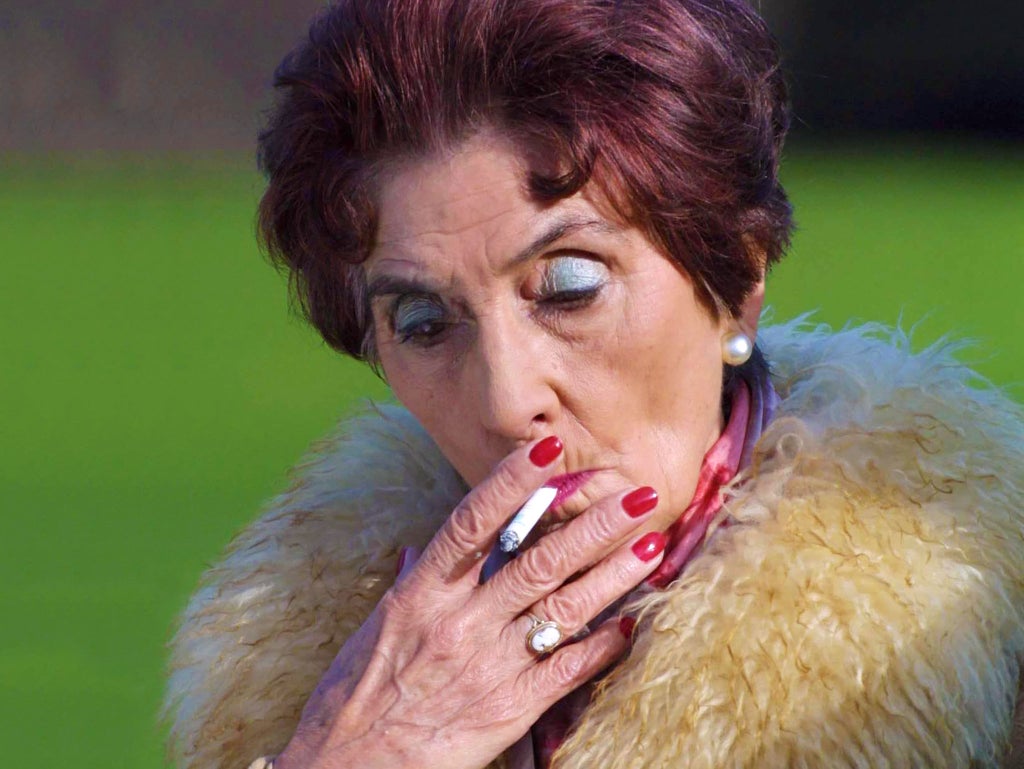
June Brown never thought of herself as a star. Whenever the subject of her Dot Cotton fame came up, the EastEnders veteran – who has died today (4 April) at the age of 95 – would wince and roll her eyes. “We’re not stars – we’re household names,” she’d insist. “We’re like Persil or Daz.” Brown was quoting the actor Gretchen Franklin, who for years played Dot’s BFF Ethel, but it was a gag that got to the heart of her own appeal, too. She could be funny, withering and deadpan – both on screen and off – but with a melancholic streak a mile long.
It’s partly why she was so good as Dot. The cigarette-smoking launderette owner was as much an Albert Square staple as the Queen Vic pub – a scolding, misanthropic gossip with a heart of gold and compassion where it mattered. Brown gave her character grit, shading, and a sense of inner conflict. Even if you hadn’t watched Dot since she first appeared on the soap opera in 1985, you felt her years of trauma in Brown’s wilted sadness. Every knock the character had taken in life seemed to have left a bruise – the crooked son she’d blindly defend to the hilt, the ailing friend she’d helped to die, the loved ones who had passed away.
Brown’s own traumas – she lost one husband to suicide and another to dementia, and two of her siblings died when she was a child – seemed to enhance the heft and authenticity of her performances. “I’ve played two people simultaneously for 35 years,” Brown said in 2020. “Really Dot wasn’t me, but spiritually she probably was.”
They were both chain-smokers, both dressed flamboyantly, and both seemed reluctant ever to smile. When Brown was nominated for a Bafta in 2009 – becoming only the second actor ever to receive such an honour for a soap opera – she didn’t celebrate. “I suppose the nomination’s lovely, and I wish I was the sort of person who’s full of joy, but I’m not,” she told The Guardian in 2009. “I just can’t get enthusiastic about things any more. I don’t know why. I think it’s age.”
Something that underpinned that perspective seemed to be professional disappointment, too. Brown was a fantastic actor who anchored many of the finest storylines EastEnders put out, but her creative gutsiness occasionally appeared to be overlooked by the show. She always seemed to be fighting for more risks, more opportunities to show what she could do. When she was in a run of the stage show Calendar Girls in 2009, for instance, she was the only one of its stars to turn their nose up at the offer of flesh-coloured underwear. “I thought: that’s awfully boring, I don’t want that.”
Throughout her later interviews, she’d beg EastEnders producers for better storylines, bemoaning long stretches of episodes in which she’d more or less walk onto set, say a line or two and then exit. “As an actress, I need a proper function,” she said in 2013. “I’ve been acting in the theatre since the late Sixties and I’m not a walk-on. I do get cross about it.” In 2020, she announced that she’d spurned the show’s request for a further retainer and left voluntarily, after stories she’d apparently been promised didn’t come to fruition.
Echoing that Persil analogy, Brown became famous in an era in which soap stars were regarded as household furniture rather than bona fide actors we’d follow to the ends of the earth. Based on the range and complexity of her work as Dot, she deserved a career like that of Suranne Jones or Sarah Lancashire – women so busy and acclaimed that you can easily forget they made their names on soaps. “I think [soap actors] are considered second-rate,” Brown said in 2014.
One of the great sadnesses of Brown’s death is that it is more than a decade since she was given a proper showcase, in a special EastEnders episode staged as a dramatic monologue. Dot sat alone, recalling her life, her loves and her losses. It was the 2008 episode that earned Brown her Bafta nod, and was so honest, bleak and gripping that it almost felt like a lost Tony Richardson movie – or at least a triumphant nod to the show’s kitchen-sink origins. Today it should be viewed as Brown’s greatest victory as an actor, but also as a testament to what the industry should always have given her.






